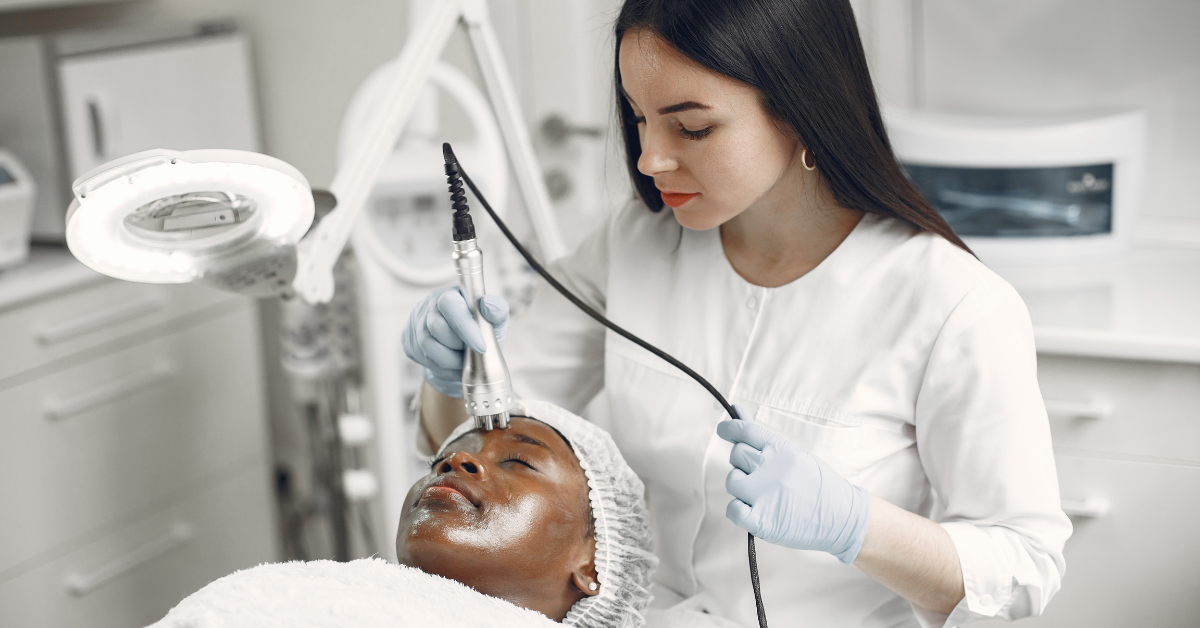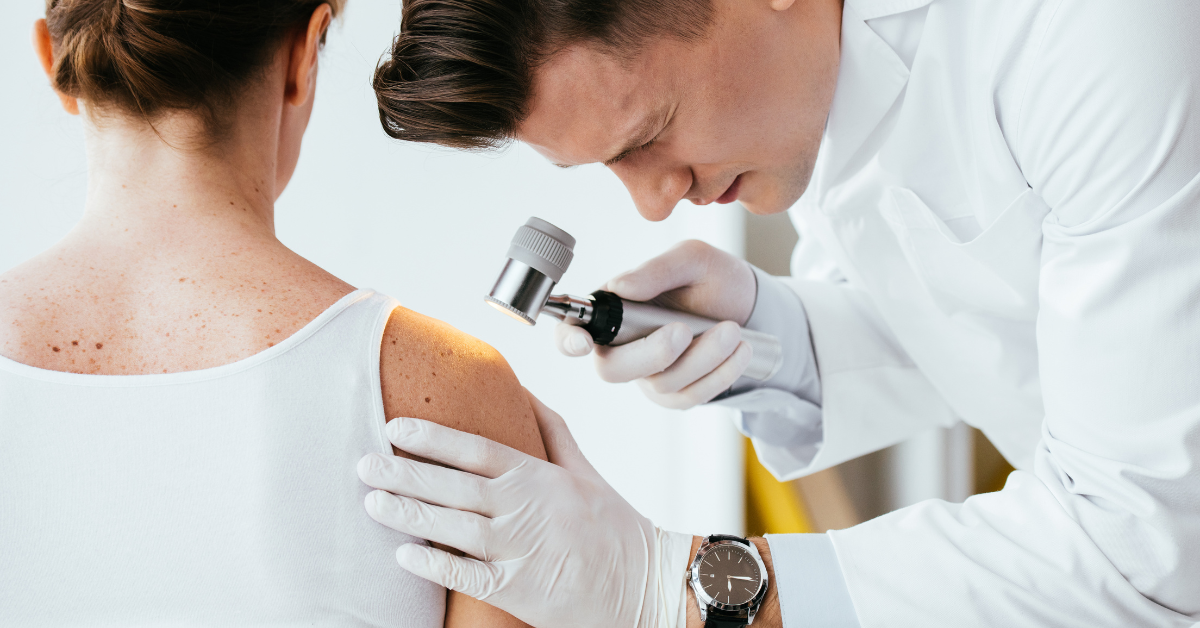
The role of physician assistants (PAs) encompasses a variety of specialties. Among these, Dermatology Physician Assistants (Derm PAs) play a pivotal part in delivering comprehensive care for dermatological conditions.
Dermatology PAs are licensed healthcare professionals who offer specialized care for various skin, hair, and nail conditions.
As the demand for dermatological services has surged in recent years due to increased awareness, changing environmental conditions, and an aging population, Derm PAs have emerged as integral members of dermatology teams, contributing significantly to patient care and practice efficiency.
This post provides an overview of the responsibilities, skills, and contributions of Dermatology PAs within the healthcare system.
Physician Assistants Increase Access To Dermatologic Care
The demand for dermatological services has surged in recent years due to increased awareness, changing environmental conditions, and an aging population. Dermatology PAs are licensed healthcare professionals who offer specialized care for various skin, hair, and nail conditions.
Derm PAs have emerged as integral members of dermatology teams, contributing significantly to patient care and practice efficiency.
Educational Background and Training
To become a Dermatology PA, individuals typically complete a Master’s level physician assistant program after obtaining a Bachelor’s degree. These programs are accredited by the Accreditation Review Commission on Education for the Physician Assistant (ARC-PA). The curriculum includes a combination of classroom instruction and clinical rotations.
The training involves a strong emphasis on general medical knowledge, clinical skills, and specialized dermatological education. Additionally, clinical rotations in dermatology settings provide hands-on experience in diagnosing and treating a broad spectrum of dermatological conditions.
Responsibilities of Dermatology Physician Assistants
Patient Assessment and Diagnosis
Derm PAs are trained to conduct thorough patient assessments, which include taking detailed medical histories, performing physical examinations, and interpreting diagnostic tests. Their ability to accurately diagnose various dermatological conditions is crucial in initiating appropriate treatment plans.
Treatment Planning and Management
Based on their assessments, Dermatology PAs collaborate with supervising dermatologists to formulate comprehensive treatment plans. This may involve prescribing medications, recommending lifestyle modifications, or performing minor surgical procedures like biopsies and excisions.
Patient Education
Dermatology PAs also play a key role in educating patients about their conditions, treatment options, and preventive measures. Effective communication is essential in ensuring patients understand and adhere to their prescribed regimens.
Procedural Skills
Dermatology PAs are often involved in various dermatological procedures, ranging from simple skin biopsies to more complex interventions such as laser therapy and cosmetic procedures. Their proficiency in these skills contributes to the overall efficiency of dermatology practices.
Collaboration and Consultation
In some states, Derm PAs work closely with dermatologists and other healthcare professionals to provide comprehensive care. Their collaborative approach ensures that patients receive integrated and multidisciplinary treatment when necessary.
Collaboration requirements for PAs and physicians vary by state – in some parts of the country, PAs have been granted full practice authority. In others, they are required to have a collaborating physician in order to practice.

Skills and Qualities of Successful Dermatology Physician Assistants
Dermatological Knowledge
A solid foundation in dermatological science is essential for Derm PAs to accurately diagnose and manage a wide array of skin conditions. Keeping abreast of the latest advancements in dermatology is crucial for providing cutting-edge care.
Communication Skills
Effective communication is paramount in dermatology, as PAs need to convey complex medical information to patients in an understandable manner. Clear communication also facilitates collaboration within the healthcare team.
Attention to Detail
Derm PAs must pay meticulous attention to detail, especially during patient assessments and procedural interventions. The ability to observe and interpret subtle changes in skin conditions is critical for accurate diagnosis and treatment.
Empathy and Compassion
Dealing with dermatological conditions, some of which may have visible and emotional impacts, requires a high level of empathy. Derm PAs should approach patient care with compassion, considering the psychological aspects of skin diseases.
Adaptability
Dermatology is a dynamic field, and Derm PAs must be adaptable to evolving treatment modalities, technologies, and research findings. Flexibility in adjusting to changes ensures optimal patient care.
Contributions to Dermatology Practices
Increased Access to Care
The presence of Derm PAs in dermatology practices enhances accessibility to care, particularly in regions facing a shortage of dermatologists. This is particularly vital given the growing demand for dermatological services.
Efficiency and Workflow Optimization
Dermatology PAs contribute to the overall efficiency of dermatology practices by handling routine examinations, minor procedures, and follow-up appointments. This allows dermatologists to focus on more complex cases, improving the workflow of the entire practice.
Patient Satisfaction
The collaborative care provided by Derm PAs fosters positive patient experiences. The accessibility of both the PA and the dermatologist ensures that patients receive prompt attention and a comprehensive approach to their dermatological concerns.
Education and Outreach
Dermatology PAs often engage in community education and outreach programs to raise awareness about skin health. Their involvement in these initiatives contributes to preventive care and early detection of skin conditions.
Challenges and Opportunities
Scope of Practice
The scope of practice for Dermatology PAs varies by state and country. Navigating these regulations and optimizing the contributions of PAs within the legal framework can be challenging but is essential for maximizing their impact.
Continuing Education
Staying current with advancements in dermatology requires ongoing education. Derm PAs must actively seek opportunities for professional development to ensure they provide the latest and most effective care to their patients.
Interprofessional Collaboration
Effective collaboration with dermatologists and other healthcare professionals requires clear communication and mutual respect. Addressing potential challenges in teamwork ensures a cohesive and patient-centered approach.
Conclusion
Dermatology Physician Assistants play a vital role in meeting the increasing demand for dermatological services and enhancing the efficiency of dermatology practices. Their diverse skills, collaborative approach, and commitment to patient care contribute significantly to the holistic management of skin, hair, and nail conditions.
As the field of dermatology continues to evolve, Derm PAs are poised to play an even more significant role in shaping the future of dermatological care, ensuring that patients receive accessible, high-quality, and comprehensive treatment.